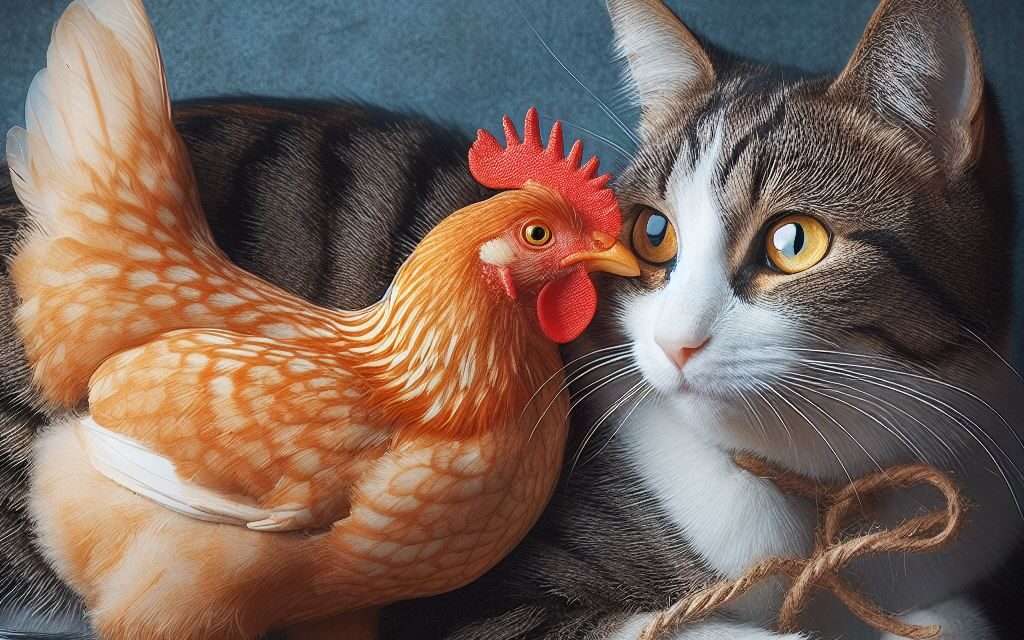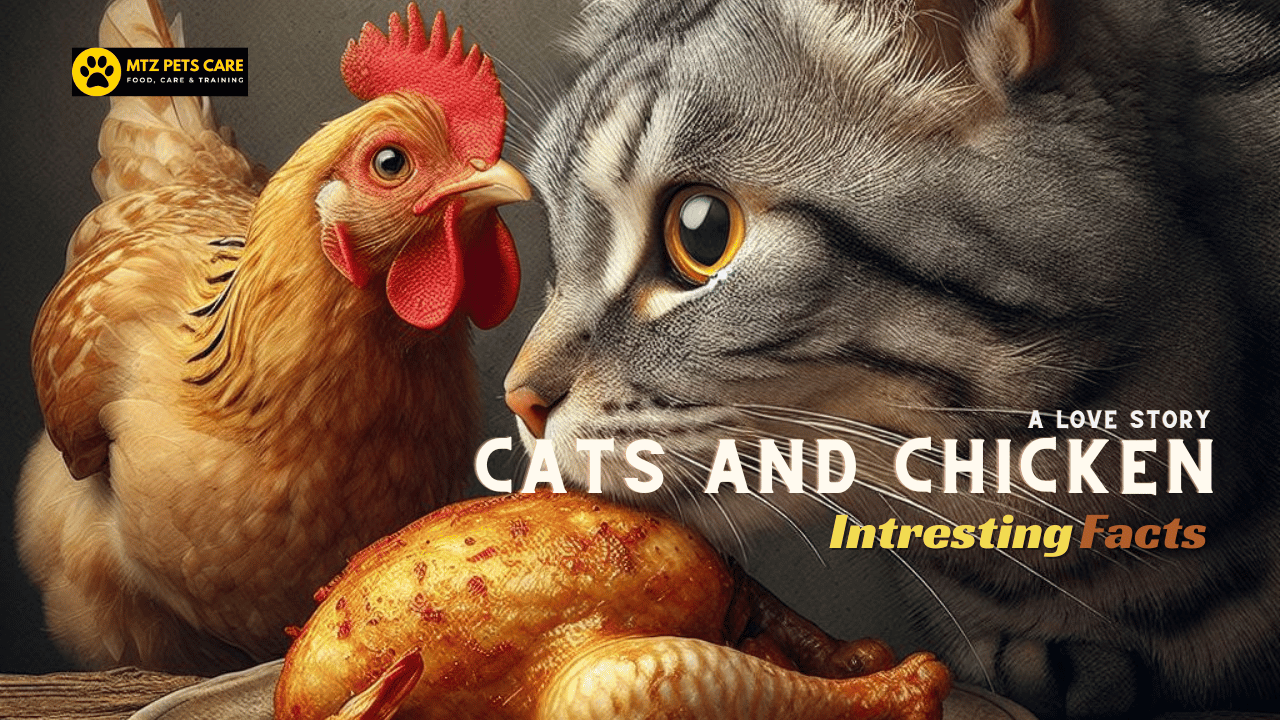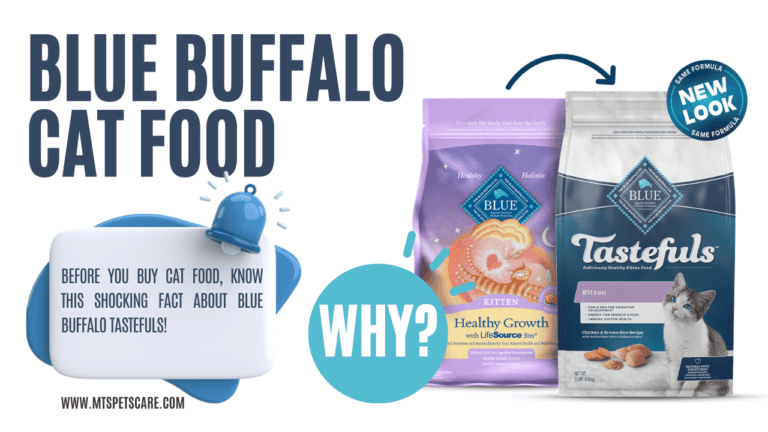Ever notice your cat go crazy for the smell of chicken? You might think sharing your dinner is a harmless treat, but hold on! While it’s true many cats seem obsessed with chicken, there’s more to the story than meets the eye. Cat eating chicken
Before we dive into the “whys” and “how’s” of giving your feline friend a taste of chicken, let’s clear up a common misconception: cats aren’t actually obligate carnivores, but rather obligate carnivores.
What’s the difference? Obligate carnivores, like lions or tigers, require meat to survive. They can’t get the essential nutrients they need from any other source. On the other hand, obligate aequivores, like cats, can get their nutrients from both meat and plant-based sources. However, meat is still a crucial part of a cat’s diet because it provides them with essential amino acids they can’t synthesize on their own.
So, while your cat doesn’t need chicken to survive, it’s definitely a food they’re naturally drawn to due to its:
- High protein content: Protein is essential for building and maintaining muscle mass, which is crucial for an active feline. Chicken is a complete protein source, meaning it contains all the essential amino acids cats need.
- Palatable taste: Cats have a strong sense of smell, and the aroma of cooked chicken is simply irresistible to many felines. This is likely due to the presence of certain compounds in chicken that mimic the natural scents of their prey.
Now, understanding why your cat loves chicken is one thing, but is it actually safe to share your dinner with them? Stay tuned for the next section where we’ll explore the dos and don’ts of giving your cat chicken in a way that’s both delicious and safe!

So You Want to Share Your Chicken with Your Cat? Here’s How (Safely)!
Forget the image of happily munching cats on chicken bones from cartoons – that’s a recipe for disaster in real life! While chicken can be a healthy and occasional treat for your feline friend, proper preparation and serving are key to ensure their safety and well-being.
Here’s how to turn your leftover chicken into a cat-approved (and vet-recommended) treat:
Cooking Matters:
Ditch the seasoning: Skip the salt, pepper, garlic, and other spices commonly used in human cooking. These can be harmful to cats and upset their delicate digestive systems.
Gentle methods are best: Stick to boiling, poaching, or baking your chicken. Avoid frying or adding excess oil, as this can lead to pancreatitis in cats.
Safe Serving:
- Bones are a big no-no: Chicken bones, both cooked and raw, can splinter and cause choking, internal injuries, and even blockages. Always remove all bones before serving any chicken to your cat.
- Skin and fat are off-limits too: While tempting, chicken skin and fat are difficult for cats to digest and can contribute to weight gain and pancreatitis.
- Cut it up: Dice or shred the cooked chicken into small, bite-sized pieces to prevent choking hazards, especially for younger kittens.
Portion Control is Key:
Remember, chicken should only be an occasional treat, not a regular part of your cat’s diet. The amount you offer depends on your cat’s age, weight, and activity level. As a general rule, a small piece (think the size of a tablespoon) is sufficient for most cats a few times a week.
Alternatives to Consider:
If your cat has allergies or digestive sensitivities, there are safe alternatives to satisfy their craving for chicken flavor. Look for commercially prepared cat food with chicken or chicken broth specifically formulated for feline consumption. These options provide the taste of chicken without the risks associated with homemade treats.
A Final Word:
While sharing your chicken with your cat can be a sweet gesture, always prioritize their safety and well-being. so cat eating chicken we know well now Follow these guidelines and consult your veterinarian for any specific dietary advice regarding your feline friend. Remember, a happy and healthy cat is a perfectly content cat!
FAQ’s
Can cats eat cooked chicken ?

Yes, cats can enjoy cooked chicken as an occasional treat, but with strict rules:
- No spices: Skip seasonings like salt, pepper, and garlic – harmful for cats.
- Ditch the bones: Cooked or raw bones are choking hazards and can cause internal injuries.
- Skin and fat are off-limits: Difficult to digest and can lead to weight gain and health issues.
- Small portions only: A small amount, a few times a week, is plenty.
Alternatives: If your cat has allergies or sensitivities, explore vet-approved cat food or broth with chicken flavor.
Remember, consult your vet for personalized dietary advice to keep your furry friend happy and healthy!
Can cats eat chicken and rice ?
Cats can have cooked chicken and plain rice as occasional treats, but remember:
- Chicken:
- Skip seasonings, bones, skin, and fat.
- Offer small portions a few times a week.
- Rice:
- Cook it plain and offer tiny amounts infrequently.
Consult your vet before adding anything new to your cat’s diet. Their regular food should be their main source of nutrition.
Can cats eat canned chicken ?
Cats can have plain canned chicken (in water) as a treat, but:
- Skip options with broth, spices, onions, or garlic (harmful).
- Shred the chicken to avoid choking.
- Offer small portions infrequently.
Consult your vet before adding anything new to their diet. Regular cat food is their main source of nutrition.
Is chicken broth good for cats ?
Plain, diluted chicken broth can be okay for cats in limited amounts, but remember:
- Skip broths with added ingredients (harmful).
- Use it sparingly for hydration or to tempt picky eaters.
- Consult your vet first, especially for cats with health issues.
- Regular cat food is their main source of nutrition.



